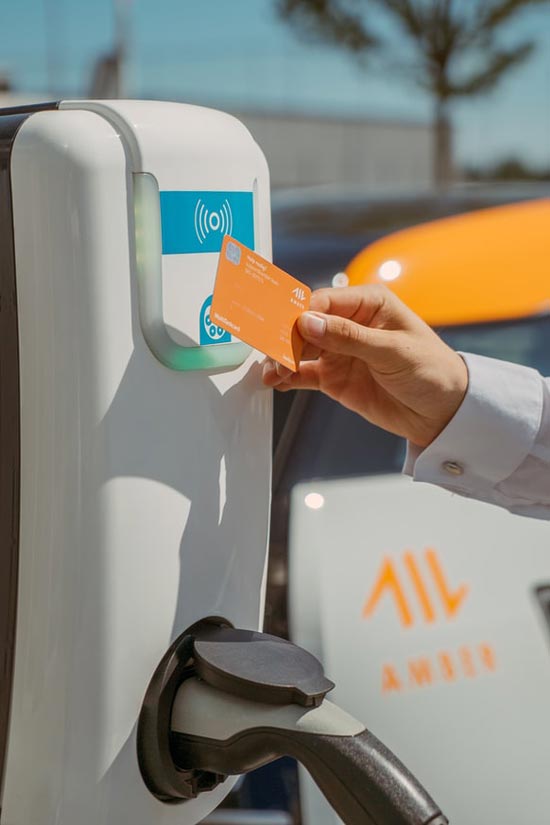
Electro-mobility: Politics should not dictate science
If there is one thing that Covid-19 has taught us, it is that politics should not dictate science. Scientific method is an objective way to discover the true nature of things and to minimise bias. However, we have seen persistent efforts to cast doubt on scientific discovery throughout this pandemic. Sure, science will always be inseparable from politics. Research can only happen with society’s blessing. But as we surmount Covid-19, we must not overlook the importance of science in our recovery and the path to a prosperous future.
Covid-19 has inflicted a severe wound in the economic health of most countries around the world. In the second quarter of this year, the U.S. economy suffered its sharpest downturn since the 1940s with a drop in gross domestic product (GDP) of 32.9%. Personal spending slumped 34.6% in the same period. Many other regions face similar declines, with the transport sector one of the most seriously affected industries.
Many are concerned that the immediate Covid-19 emergency will force a looming climate crisis to the back burner, and the politics of the recovery from Covid-19 may hinder or delay a necessary transition to e-mobility. How can the transport sector exit the current predicament, while remaining on track to achieve its required carbon savings?
Arne Richters, chair of the Platform for Electro-mobility, has called on the European Commission to push forward with policies that will enable an e-mobility ecosystem. Richter’s request came during a recent Platform for Electro-mobility-led event on “How can zero-emission mobility become the motor of the European green recovery?” The Platform for Electro-mobility was established in 2016 and comprises more than 40 members, including a mix of companies, trade associations and non-governmental organisations (NGO).
A quarter of Europe’s carbon emissions come from transport. The Platform for Electro-mobility’s strongly held view is that electric mobility is “the best solution to achieve the climate and industrial ambitions of the European Green Deal” and that the green stimulus should be accelerated. Europe’s economic recovery package must support the electric mobility ecosystem, investments into e-mobility supply chains, and demand for zero-emissions vehicles. An accelerated rollout of charging infrastructure is also vitally important, they say.
During the July 3, 2020 virtual event, Richter insisted that the European Commission move forward with a new Alternative Fuel Infrastructure Law, Sustainable Battery Package, and revision of the Energy Taxation directive.
In June 2020, Europe’s passenger car market was down 24% year-on-year. Despite the downturn, electric vehicles have been gathering momentum. According to Clean Technica, the share of plugins reached 7.9% in June 2020, with a 4.3% share for battery electric vehicles alone. These figures are more than double the share achieved in 2019 (3.6%). Incentive changes in a number of European markets are responsible for the surge in orders.
It is important to continue this momentum in the post-covid-19 period. In the past, OEMs have shown they are happy to put the brakes on once compliance is achieved, says Peter Badik, CEO and founder of Greenway and a panelist at the Platform for Electro-mobility event. Such a move delays a crucial shift to e-mobility. Badik wants to put the accelerator to the floor on the electrification of transport. Greenway is an infrastructure company, currently building and operating comprehensive, nationwide electric vehicle charging infrastructure in Poland and Slovakia.
Another panellist, Julia Poliscanova, head of clean vehicles & e-mobility at Transport & Environment, called for a move away from alternative fuels to focus on electrification. “Let’s not squander any more money from the next generation into fossil fuels,” she says. The missing ingredient in a lot of strategies is an end date to phase out all internal combustion engine vehicle sales, says Poliscanova. “Our view is it should be no later than 2035.” This will focus our efforts and help us come out of this recession better, and greener, she says.

Ten years ago, recovery packages from the Global Financial Crisis were disconnected from climate objectives. Special guest Pascal Canfin, chair of the committee on the environment, public health, and food safety at the European Commission, is convinced the bloc will not make the same mistake this time.
Canfin cited a maturity of public opinion that will ensure climate remains high on the agenda. Recovery plans will be aligned with the requirements of the Paris Agreement, and will significantly decrease the investment gap. “It is the right time to provide politicians with a package of ready-to-use solutions to scale up electric mobility,” he says.
Richter confirmed a letter has been sent to the European Commission president that includes several measures to stimulate electric vehicle update including temporary VAT exemptions, an EU wide scrappage scheme to encourage motorists to purchase a new, more environmentally-friendly car, and a massive infrastructure investment scheme.
Fuel taxation is often cited as an important lever in speeding up a shift to e-mobility. Canfin does not believe a carbon price on fuel significantly alters the economic rationality for consumers. Even today, with a low oil price, there is economic rationality to move to e-mobility, he says.
Europe cannot afford to lose out to other countries in the race to electrification. China, the global leader in alternatively powered vehicles, is already marketing some of their models in Europe and poses a real risk to European policy.
Europe is poor in terms of natural resources. Electrification offers an opportunity to become more independent, alongside growth in solar and wind generation. The Platform for Electro-mobility also suggests a rapid transition to electro-mobility could create more than one million jobs, including 80,000 jobs in battery manufacturing and 330,000 jobs installing operating chargers. Growing demand for renewable energy production and grid workers could deliver 60,000 additional jobs by 2030. Expanding the electric train network has been linked to job creation of more than a half a million. No doubt, jobs are of utmost importance in the recovery from this Covid-19 disaster.
But the transition needs to start now and must benefit from political, financial, and technological support. Reskilling workers must be ambitious and immediate. At present, we do not even have enough people to install the volume of new chargers required, says Poliscanova.







